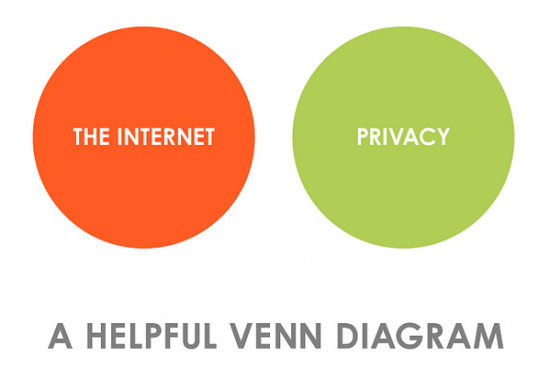Countless posts have been written about privacy on the internet. Guides to Facebook Privacy Settings. Privacy tips for Foursquare. Best Practices and Etiquette tips for networks like Twitter.
Everyone loves social media for it’s marketing potential and the sense of connectedness that it brings to friends and fans but when it comes to matters of privacy, they rise in uproar. To that end I quote Pete Cashmore in an article dated October of last year:
Privacy is dead and social media hold the smoking gun.

Privacy Tip(s):
If it’s not meant to be public (now or ever), don’t…
- …post it on Facebook as a Status Update or picture.
- …tweet it.
- …check in on Foursquare (Gowalla or whrrl).
- …blog about it.
- …comment about it on another blog.
Keep it to yourself. Period. Otherwise, it belongs to the internet for everyone to see and for everyone to share.
What are your privacy tips to those using/engaging in social media?
PHOTO CREDIT: Flowingdata.com (hat tip: wzzy)


